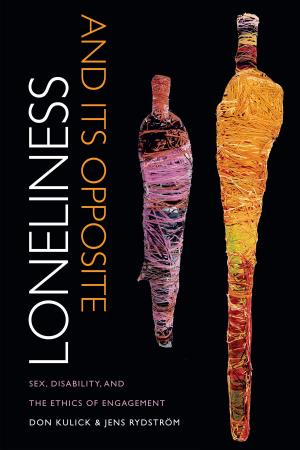Breaking Bad and Cinematic Television
Nonfiction, Entertainment, Performing Arts, Television, History & Criticism| Author: | Angelo Restivo | ISBN: | 9781478003441 |
| Publisher: | Duke University Press | Publication: | February 14, 2019 |
| Imprint: | Duke University Press Books | Language: | English |
| Author: | Angelo Restivo |
| ISBN: | 9781478003441 |
| Publisher: | Duke University Press |
| Publication: | February 14, 2019 |
| Imprint: | Duke University Press Books |
| Language: | English |
With its twisty serialized plots, compelling antiheroes, and stylish production, Breaking Bad has become a signature series for a new golden age of television, in which some premium cable shows have acquired the cultural prestige usually reserved for the cinema. In Breaking Bad and Cinematic Television Angelo Restivo uses the series as a point of departure for theorizing a new aesthetics of television: one based on an understanding of the cinematic that is tethered to affect rather than to medium or prestige. Restivo outlines how Breaking Bad and other contemporary “cinematic” television series take advantage of the new possibilities of postnetwork TV to create an aesthetic that inspires new ways to think about how television engages with the everyday. By exploring how the show presents domestic spaces and modes of experience under neoliberal capitalism in ways that allegorize the perceived twenty-first-century failures of masculinity, family, and the American Dream, Restivo shows how the televisual cinematic has the potential to change the ways viewers relate to and interact with the world.
With its twisty serialized plots, compelling antiheroes, and stylish production, Breaking Bad has become a signature series for a new golden age of television, in which some premium cable shows have acquired the cultural prestige usually reserved for the cinema. In Breaking Bad and Cinematic Television Angelo Restivo uses the series as a point of departure for theorizing a new aesthetics of television: one based on an understanding of the cinematic that is tethered to affect rather than to medium or prestige. Restivo outlines how Breaking Bad and other contemporary “cinematic” television series take advantage of the new possibilities of postnetwork TV to create an aesthetic that inspires new ways to think about how television engages with the everyday. By exploring how the show presents domestic spaces and modes of experience under neoliberal capitalism in ways that allegorize the perceived twenty-first-century failures of masculinity, family, and the American Dream, Restivo shows how the televisual cinematic has the potential to change the ways viewers relate to and interact with the world.















